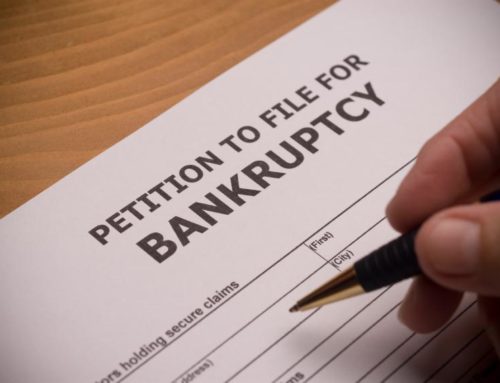Guard Your Retirement Savings In The Face of Bankruptcy!
When you consider bankruptcy, one of the important things that comes into your mind is keeping your retirement savings in bankruptcy—will you lose them or not? Do you need to do something to protect them? These are just some of the questions we often hear from our clients. If you are wondering what will happen to your retirement savings in bankruptcy, this article will provide a general overview of preserving your retirement savings in bankruptcy.
Short Summary:
- Federal and state regulations offer robust safeguards for retirement funds in bankruptcy.
- Safeguarded accounts include Traditional and Roth IRAs, 401(k)s, 403(b)s, Keogh plans, pensions, Social Security, Railroad Retirement Board benefits, VA Disability and Retirement benefits.
- Retirement savings provide long-term financial security and a steady income during retirement.
- They reduce dependency on Social Security, cover healthcare costs, protect against inflation, and offer flexibility for early retirement or career transitions.
- Withdrawing retirement funds to settle debts is discouraged due to legal protections and potential financial consequences.
- Early withdrawals incur a 10% IRS tax penalty and ordinary income taxes, leading to irreversible loss of future gains.
- Cashing out retirement funds may not prevent bankruptcy and can be less effective than perceived.
- Consider rolling over 401(k) balances into IRAs or new employer plans during job changes or retirement.
- Rollovers provide benefits such as consolidation and investment flexibility.
- Timing considerations and tax implications should be evaluated.
In West Virginia and other parts of the country, bankruptcy offers legal avenues for people struggling with debt, either by eliminating it (Chapter 7) or creating payment plans (Chapter 13). That provides crucial financial security for West Virginians entering bankruptcy, allowing them to safeguard their future retirement despite present difficulties.
Can I Protect My Retirement Funds In Bankruptcy?
This frequently asked question consistently receives an affirmative response, as federal and state regulations provide robust safeguards for retirement funds, whether within or outside the context of bankruptcy. Should you decide to file for bankruptcy, the ensuing list outlines the safeguarded retirement accounts:
- Traditional and Roth Individual Retirement Accounts (IRAs) are safeguarded up to $1,245,475 protection of 401(k)s, 403(b)s
- Keogh plans pensions and various other defined benefit plans
- Social Security
- Railroad Retirement Board Benefits
- VA Disability and Retirement Benefits
In this dynamic legal landscape, staying informed and seeking efficient guidance ensures a more secure financial footing. By delving into the specifics of Wheeling’s bankruptcy laws, individuals can make informed decisions that align with their unique circumstances, paving the way for a brighter financial future.
Why Do Retirement Savings Matter?
Retirement savings play a pivotal role in securing your financial future. Here’s why they matter:
- Long-Term Financial Security
- Retirement Income: Your savings act as a safety net, providing a steady stream of income during your retirement years. Without sufficient savings, you risk financial instability when you are no longer earning a regular paycheck.
- Lifestyle Maintenance: Retirement savings allow you to maintain your desired lifestyle—whether that is traveling, pursuing hobbies, or spending time with family.
- Reducing Dependency
- Social Security Is Not Enough: Relying solely on Social Security benefits may not be sufficient. These benefits are often modest and may not cover all your expenses.
- Avoiding Burden on Loved Ones: Having your savings reduces the burden on family members or loved ones who might otherwise need to support you financially.
- Healthcare Costs
- Medical Expenses: As you age, healthcare costs tend to rise. Retirement savings help cover medical bills, insurance premiums, and long-term care expenses.
- Peace of Mind: Knowing you have funds earmarked for healthcare provides peace of mind and reduces stress.
- Inflation Protection
- Preserving Purchasing Power: Inflation erodes the value of money over time. By saving for retirement, you protect your purchasing power against rising prices.
- Investment Growth: Properly invested retirement funds can grow over the years, outpacing inflation.
- Early Retirement or Flexibility
- Financial Independence: Sufficient savings allow you to retire early if desired. You gain the freedom to pursue other interests or start a second career.
- Career Transitions: Having savings provides flexibility during career transitions, such as switching jobs, starting a business, or taking sabbaticals.
- Emergency Fund
- Unforeseen Expenses: Retirement savings can serve as an emergency fund. Unexpected events like home repairs, car breakdowns, or medical emergencies will not catch you off guard.
- Tax Benefits
- Tax-Advantaged Accounts: Retirement accounts (such as IRAs and 401(k)s) offer tax benefits. Contributions may be tax-deductible, and growth is tax-deferred until withdrawal.
- Roth IRAs: Roth IRAs provide tax-free withdrawals in retirement.
Remember, consistently contributing to your retirement savings and making informed investment decisions are essential for a secure financial future.
Should I or Should I Not Use My Retirement Savings?
A common error among our clientele involves withdrawing funds from their retirement accounts to settle debts owed to creditors. This action proves problematic for several reasons:
- Both federal and state regulations shield retirement accounts during bankruptcy and beyond. Regardless of creditors’ aggressive pursuit, lawsuits, or wage garnishments, these accounts remain untouchable, and safeguarded from creditors and bankruptcy courts.
- The underestimated expense of withdrawing retirement funds often comes to light. The Internal Revenue Service (IRS) imposes a 10 percent tax penalty on premature withdrawals (before age 59 ½) from 401k, 403b, IRA, Roth IRA, or pensions. Besides the penalty, ordinary income taxes at federal and state levels apply to taxable gains in the withdrawal year. Additionally, withdrawing retirement money may elevate you into a higher tax bracket.
- Retirement funds, once cashed out, are irretrievably lost, including potential future gains. A sum growing at a 7% average annual rate doubles every decade, turning $1,000 into $4,000 in 20 years. Early withdrawal not only forfeits the initial $1,000 but also the $3,000 in potential earnings.
- Cashing out retirement funds often fails to avert bankruptcy, merely prolonging the debt. Individuals attempting to sidestep bankruptcy through this route frequently find themselves eventually filing for bankruptcy anyway.
- Contrary to common misconceptions, bankruptcy is not as detrimental as perceived. Before cashing out retirement accounts, consult with financial or legal professionals to explore alternatives. Bankruptcy might emerge as the most suitable option, dispelling misconceptions and potentially dissuading you from depleting your retirement savings.
Strategies For Keeping Your Retirement Savings in Bankruptcy
By understanding these insights and applying them proactively, you can navigate the complexities of bankruptcy confidently, ensuring that your hard-earned retirement funds remain secure and accessible for your future needs.
Rolling Over Retirement Funds
When facing bankruptcy, understanding your rollover options for 401(k)s and IRAs is crucial:
- 401(k) Rollover: If you change jobs or retire, consider rolling over your 401(k) balance into an IRA or your new employer’s 401(k) plan.
Benefits:
- Consolidation: Rollovers allow you to consolidate multiple retirement accounts, simplifying management.
- Investment Flexibility: IRAs often offer a wider range of investment choices than employer-sponsored plans.
- IRA Rollover: Transfer funds from one IRA to another without incurring taxes or penalties.
- Timing Considerations
- Job Transition: When changing jobs, decide whether to roll over your old 401(k) into an IRA or your new employer’s plan.
- Retirement Planning: As retirement approaches, assess your investment strategy and consider consolidating accounts.
- Tax Implications: It may be the following:
- Direct Rollover: Opt for a direct rollover to avoid tax withholding. Funds move directly from one account to another.
- Indirect Rollover: If you receive the funds personally (e.g., via a check), you have 60 days to complete the rollover. Be cautious—taxes may apply if you miss the deadline.
Protect Your Retirement Savings Today!
When keeping your retirement savings in bankruptcy, you know that it involves a lot of legal concepts. Thomas E. McIntire & Associates, L.C. can help. Our legal team has over 30 years of experience providing legal services in Wheeling, West Virginia. We understand bankruptcy is complicated, so we ensure everyone receives the best legal service they deserve.
Aside from protecting your retirement savings in bankruptcy, we provide legal guidance with building a comprehensive estate plan and getting compensation for someone’s negligence. Let us work together and discuss your wise options. Get a free debt analysis today!





